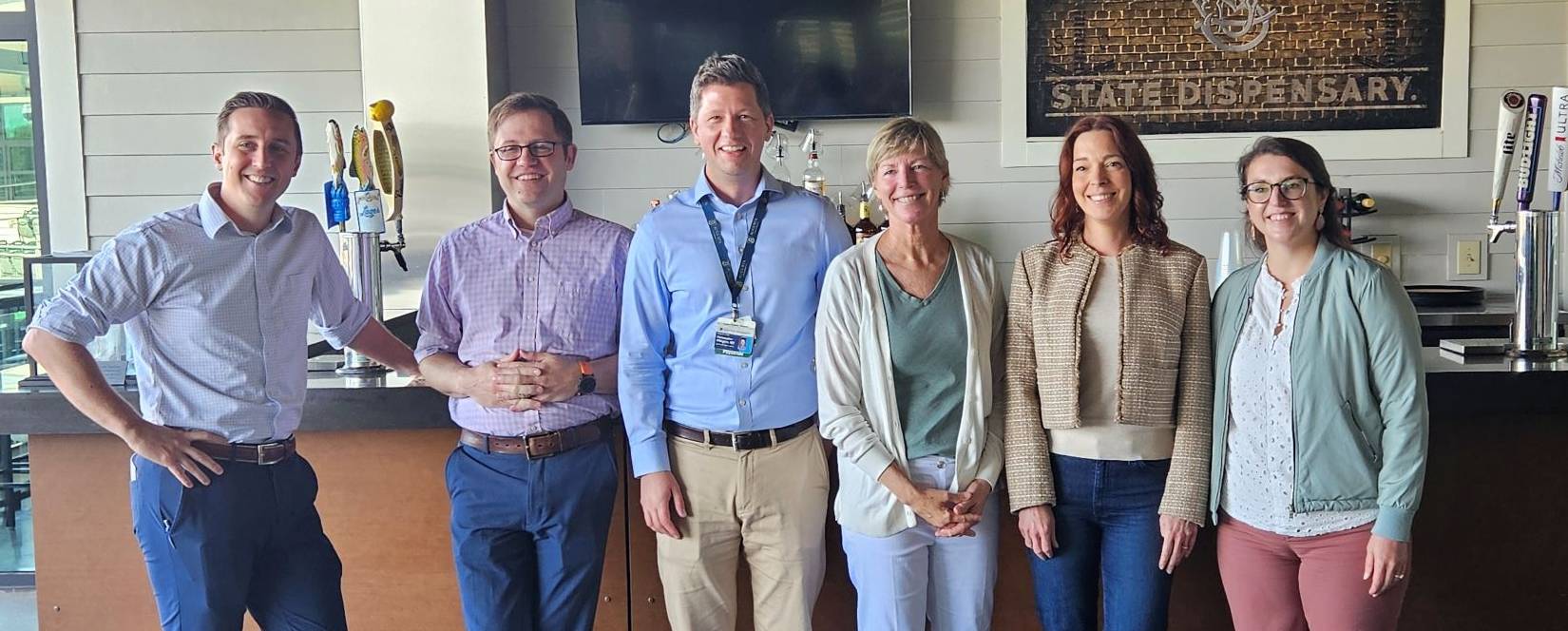
Program Strengths
Medical Economics
This is a two week course for upper level residents taught by Dr. David Fallaw. This curriculum encompasses all things residents wish they were taught in medical school and residency to prepare them for practice upon completion of training.
The goal of this elective is to improve learner’s knowledge of the economic, business and regulatory issues involved in the practice of clinical medicine in the United States.
The objectives are:
- Understand the basics of starting and operating a private medical practice.
- Become familiar with key economic and policy issues affecting the practice of medicine.
- Learn the principles and processes of quality improvement as they apply to outpatient and inpatient medical practice.
Simulation Lab (SIM)
Simulation training, a cornerstone in many professions, is increasingly making its mark in medicine with rapid advancements and growing sophistication. Fellowship and residency programs are increasingly adopting this innovative approach, recognizing the immense value of practicing and mastering rare or challenging scenarios, particularly those involving acutely ill patients where swift decision-making is crucial. These high-fidelity simulations enable residents to refine their responses and develop confidence, both on the wards and in intensive care units.
At our state-of-the-art Simulated Patients for Education, Assessment, & Research (SPEAR) Center, trainees engage in a diverse range of clinical scenarios using advanced mannequins and standardized patients. This facility offers the opportunity to perform bedside procedures in skill labs and integrate Point-of-Care Ultrasound (POCUS) into their training, all within a controlled, safe environment. This comprehensive approach ensures that residents are well-prepared to tackle real-world clinical challenges with competence and poise.
Our simulation curriculum, conducted on academic days, is seamlessly integrated into our noon conference lecture series. We create opportunities for interns and residents to navigate complex and uncomfortable situations, fostering their ability to teach and perform at advanced levels. Each simulation session concludes with a debriefing period, where trainees receive constructive feedback, allowing for growth and improvement without the pressures of live patient outcomes. This dynamic and supportive environment enhances their skills, builds confidence, and ultimately contributes to better patient care.
Ultrasound
Our curriculum is designed to deliver comprehensive POCUS training through a blend of didactic instruction, hands-on scanning labs, and practical scanning rounds. This multifaceted approach ensures residents gain both the foundational knowledge and real-world experience needed for mastery.
-
Didactics: Lectures and interactive sessions cover principles, techniques, and clinical applications of POCUS.
-
Hands-on Labs: Residents practice with advanced ultrasound equipment under expert supervision.
-
Scanning Rounds: Real-time clinical application in patient care settings.
To support growth, we incorporate proficiency assessments and progress tracking, helping identify areas for improvement while ensuring each resident achieves competency.
Our ultimate goal is to provide lifelong skills in ultrasound that enhance clinical practice and improve patient outcomes. By integrating knowledge, practice, and feedback, our program equips residents to confidently and effectively use POCUS throughout their careers.
POCUS Fellowship 2024-2026
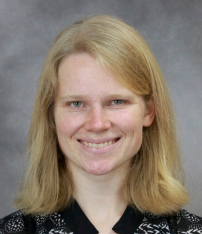
Emily Blom
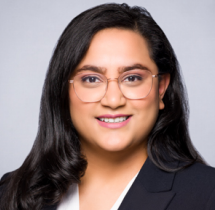
Luvika Gupta
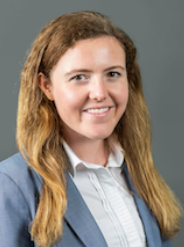
Mina Rismani
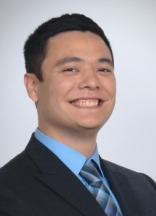
Steven Shiba
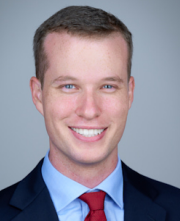
Marshall Weber
Board Preparation:
Internal Medicine Residents at AU have the foundations for excellent board preparation with their strong clinical experience and dedicated time for educational conferences. The spring Board Review Course series, personalized for each PGY-3 class, is a capstone for board preparation each year.
Clinical Experience:
A foundation of board preparation is clinical experience and here at AU, we are fortunate to have a diverse range of patients, pathologies and elective rotations in each Internal Medicine specialty, we also have academic faculty, in both internal medicine and each specialty, who are dedicated to teaching.
Educational Conferences:
Each week there is dedicated time for educational sessions, including Noon Conference, Morning Report, M&M, outpatient ambulatory morning conferences, and others.
MKSAP:
Residents are each given MKSAP Complete (books and online access) as PGY1s.
Board Review Course:
In addition to these foundations, our program also has an additional Board Review Course for residents in the spring of each academic year, to aid in their board preparation. This board preparation series is focused on the ABIM examination and is taught by our academic faculty in General Internal Medicine and each specialty.
It is case and question based, interactive, and personalized for each PGY-3 class. The focus of topics for the course is based on data regarding the areas of strength and weakness of the current PGY-3 class from their standardized In-Training Examination taken earlier in the year.
Starting in 2020, our spring Board Review Course encompassed 24 conference sessions, all taught by different academic faculty from each specialty. Residents of each PGY level are welcome and encouraged to attend. This course is adjusted and improved each year by asking for feedback from our graduated residents, after they take their ABIM examination.
Residents as Teachers
Residents in our program are actively engaged in teaching their peers and medical students through various avenues. They lead discussions on analyzing journal articles, present intriguing overnight cases during morning reports, and deliver formal presentations as part of the Case of the Week series. Additionally, impromptu discussions on patients or pertinent clinical topics are commonplace.
To teach is to learn twice.
- Joseph Joubert
Interns as Teachers
The process of educating interns to become effective teachers begins as soon as they enter the IM residency program and continues throughout their intern year. This intentional approach to fostering teaching skills is crucial for developing a cadre of competent and confident educators within the resident cohort.
During orientation, interns receive training and guidance on the principles of teaching and effective communication. They learn about the importance of their role as educators within the program and are introduced to various teaching methodologies and resources. This early exposure sets the stage for interns to understand the expectations and responsibilities associated with their role as teachers.
Throughout the intern year, interns have opportunities to apply and refine their teaching skills in various contexts. They engage in teaching activities during clinical rotations, such as leading discussions, presenting cases, and providing feedback to medical students and junior residents. Additionally, interns participate in educational workshops and seminars focused on enhancing teaching effectiveness and communication strategies.
Programmatic support is also provided to interns to help them navigate the challenges of teaching while balancing their clinical responsibilities. Faculty mentors and senior residents serve as resources for interns, offering guidance, feedback, and mentorship as they develop their teaching skills.
By embedding teaching education into the fabric of the residency program, interns are equipped with the knowledge, skills, and confidence to effectively educate and mentor their peers and junior learners. This comprehensive approach not only enhances the learning experience for all members of the program but also cultivates a culture of continuous learning and professional development among residents.
Bite Size Teaching (BeaST)
One innovative teaching method we've implemented is Bite Size Teaching (BeaST) mode. Residents collaborate with faculty to craft concise, 10-minute sessions focused on high-impact, evidence-based, and board-relevant topics. A panel of faculty evaluates each speaker, providing verbal feedback, and ultimately selects a winner. Residents also participate in choosing a "viewers-choice" award. Topics covered in BeaST sessions have included asthma, small intestinal bacterial overgrowth (SIBO), pneumonia, Barrett's esophagus, hepatorenal syndrome, and gastroesophageal reflux disease (GERD). This approach ensures residents hone their teaching skills while staying updated on key clinical subjects.
R2 Leadership Retreat
The annual R2 Leadership Retreat for rising PGY2s is a multifaceted program designed to not only enhance teaching skills but also to prepare residents for the transition into team leading, increased patient volume, and the supervision of interns and medical students. This immersive experience equips residents with practical strategies and resources to excel as educators and leaders in clinical settings while navigating the complexities of their evolving roles.
Throughout the retreat, residents engage in workshops and interactive sessions tailored to enhance their capacity as educators and team leaders. They learn to effectively communicate and collaborate with their peers, while also gaining insights into various teaching styles and methodologies to create inclusive, patient-centered learning environments. Emphasizing the importance of effective communication and collaboration, the retreat promotes teamwork through activities and case-based discussions, allowing residents to hone their skills in communicating complex medical concepts and addressing teaching challenges.
Moreover, as residents prepare to take on increased patient loads and assume supervisory roles over interns and medical students, the retreat provides them with the necessary tools and resources to navigate these responsibilities. Through reflective exercises and peer feedback sessions, residents develop personalized plans for professional growth, ensuring continuous development and innovation in their roles as educators and leaders.
Ultimately, the R2 Leadership Retreat cultivates a culture of teaching excellence, collaboration, and leadership among residents, preparing them to effectively lead teams, manage patient care responsibilities, and supervise learners while maintaining a commitment to delivering high-quality patient care.
R3 Leadership Retreat
The annual R3 Leadership Retreat offers PGY3 residents a dedicated space to address essential aspects of their professional and personal development as they transition out of residency. The primary objectives of this retreat are threefold.
Firstly, residents explore life goals and confront the anxieties associated with leaving residency. As they prepare to conclude their residency training and embark on their careers, the retreat provides a platform to reflect on personal and professional aspirations. Guided discussions and activities help residents navigate their transition, including considerations for career paths, further specialization, and work-life balance. Additionally, discussions about the ABIM exam, licensing requirements, and the logistical aspects of starting their careers, such as obtaining licensure and navigating the job market, are essential components of this exploration.
Secondly, the retreat fosters group camaraderie and reinforces a culture of teamwork among PGY3 residents. Building upon the relationships established throughout residency, residents engage in team-building exercises, collaborative projects, and shared experiences. Strengthening bonds and support networks is crucial not only for effective teamwork during residency but also for fostering lifelong professional connections. Moreover, discussions about finances and loan repayment strategies are integrated into the retreat agenda, addressing the financial considerations that accompany the transition out of residency.
Lastly, the retreat prioritizes activities and discussions focused on cultivating, maintaining, and recharging residents' overall well-being. Recognizing the importance of physician wellness, residents participate in wellness-focused workshops, mindfulness exercises, and self-care practices. Equipped with strategies to manage stress, prevent burnout, and prioritize their health and wellness, residents are better prepared to navigate the challenges of their careers with resilience and self-care as they transition out of residency. By addressing these key goals, the R3 Leadership Retreat empowers PGY3 residents to navigate their transition with confidence, resilience, and a renewed sense of purpose, while also fostering a supportive community and promoting lifelong wellness habits.
The Medical Educators Track
The Medical Educators Track is committed to providing residents with robust training in medical education. Over the course of the program, participants engage in over 30 hours of intensive training aimed at enhancing their abilities in educating medical students, interns, and fellow residents. This comprehensive curriculum covers a range of topics essential for effective teaching, including applying learning theory to teaching sessions, establishing a safe and conducive learning climate, setting appropriate learning goals with clear objectives, and utilizing diverse strategies to promote understanding and self-directed learning.
Furthermore, residents learn to provide learners with effective feedback, evaluate learner achievement, and assess the effectiveness of teaching sessions. Through a variety of teaching situations, including large group/lecture settings, small group discussions, and clinical environments such as ambulatory and inpatient settings, residents develop versatile teaching skills that prepare them for a range of educational contexts.
By the conclusion of the program, residents have not only enhanced their teaching abilities but also gained valuable insights into the art and science of medical education. This rigorous training equips participants with the necessary competencies to excel as educators in academic medicine, contributing to the advancement of medical education and the cultivation of future generations of physicians.
Medical Educators Track
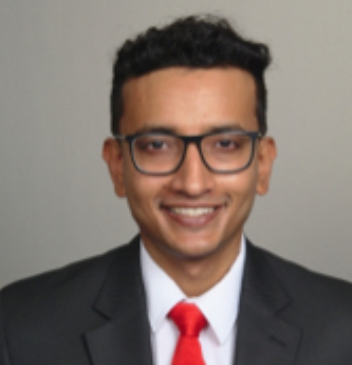
Abhiyan Bista
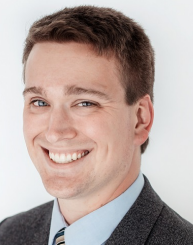
Casey Capp
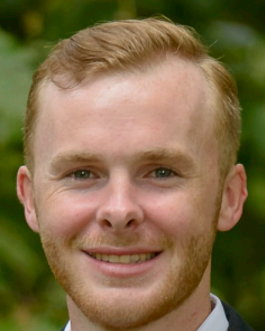
Patrick Houlihan
Resident Luncheon with Program Director & Department Chair
Once a month, residents have the valuable opportunity to meet with the Program Director and Chair of the Department of Medicine (DOM). These meetings serve as a platform for residents to acquaint themselves with the new interns joining the program. This facilitates a smooth transition for both parties, allowing interns to familiarize themselves with the resident cohort and understand the dynamics of the team they'll be working with. Conversely, these gatherings also provide a chance for interns to get to know the residents better. Building relationships within the team is crucial for effective collaboration and communication, fostering a supportive and cohesive working environment.
Additionally, these monthly meetings serve as a forum for residents to voice any concerns they may have. By providing a direct line of communication with program leadership, residents can raise issues, share feedback, or seek guidance on matters affecting their training experience. This proactive approach helps to identify and address potential challenges early on, ensuring a positive and supportive learning environment for all residents.
Overall, these monthly meetings with the Program Director and DOM Chair play a vital role in facilitating communication, fostering relationships, and addressing concerns within the residency program. They contribute to the overall success and well-being of residents by promoting transparency, collaboration, and support from program leadership.